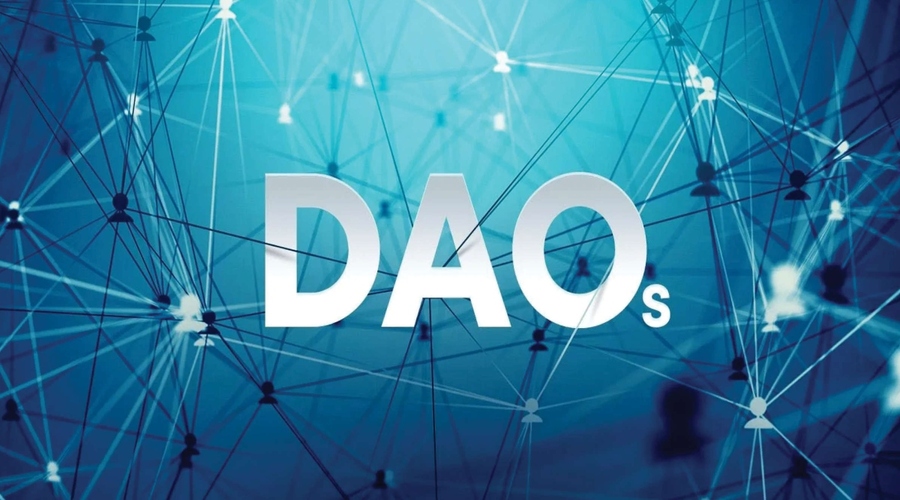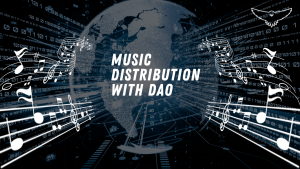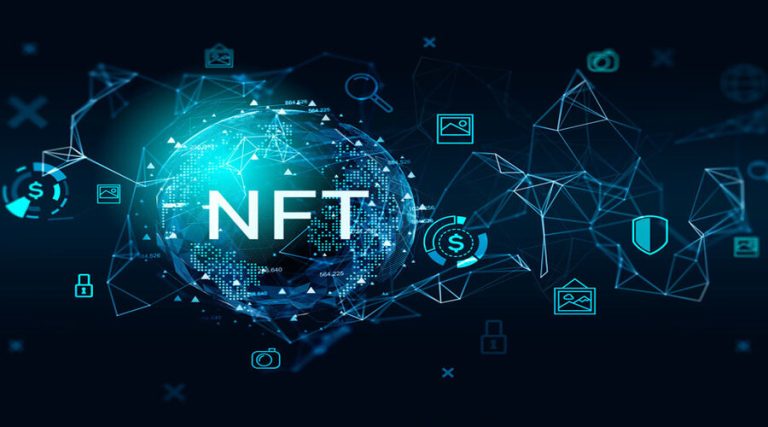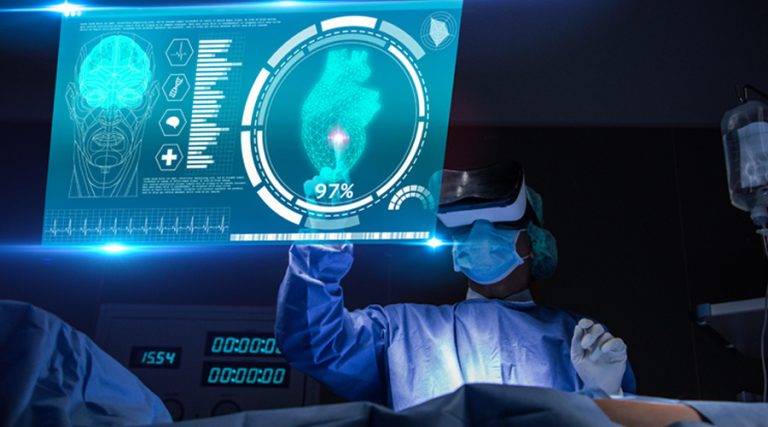
The Role of Decentralized Autonomous Organizations (DAOs) in the Music Industry
Decentralized Autonomous Organizations (DAOs) have the potential to transform the music industry by introducing new models of collaboration, funding, and distribution. In this article, we explore the role of DAOs in the music industry, examining their impact on music creation, funding, and distribution. We also delve into the challenges and considerations surrounding DAO implementation and highlight successful examples of DAOs in the music industry.
Introduction
The music industry faces numerous challenges, including centralized control, complex royalty structures, and limited artist autonomy. DAOs, powered by blockchain technology, offer a decentralized and transparent alternative that can address these issues, revolutionizing the music industry.
Understanding DAOs in the Music Industry
DAOs are organizations governed by smart contracts and decentralized decision-making mechanisms. In the music industry, DAOs can facilitate collaboration, promote transparency, and empower artists. By removing intermediaries and allowing for direct artist-to-fan interactions, DAOs enable a more democratic and artist-centric music ecosystem.
The Impact of DAOs on Music Creation and Collaboration
DAOs enable decentralized collaboration and collective decision-making among artists. Through DAO platforms, artists can collaborate on music creation, songwriting, and production. Smart contracts ensure fair compensation, streamline royalty distribution, and provide transparent attribution. DAOs empower artists by granting them ownership and control over their work, fostering a sense of creative autonomy.
DAOs and Music Funding
DAOs offer innovative funding models for the music industry. Artists can utilize DAOs for crowdfunding music projects, allowing fans to become direct stakeholders and contributors. Decentralized fundraising and investment opportunities provided by DAOs democratize access to funding, supporting independent artists and fostering a more inclusive music landscape.
DAOs and Music Distribution
DAOs facilitate decentralized music distribution platforms. These platforms enable direct artist-to-fan interactions, cutting out intermediaries and reducing costs. Artists can ensure fair compensation, track usage transparently, and retain control over their music. DAO-powered distribution platforms revolutionize the music industry by providing artists with a direct line of communication with their audience and fostering a more equitable ecosystem.
Challenges and Considerations
Implementing DAOs in the music industry poses challenges and considerations. Legal and regulatory implications, governance and decision-making processes, and industry resistance need to be addressed to ensure widespread adoption and successful integration of DAOs into the existing music infrastructure.
Examples of Successful DAOs in the Music Industry
Several successful DAOs have emerged in the music industry. For instance, Ujo Music utilizes DAO principles to empower artists, enable crowdfunding, and streamline royalty payments. Other notable projects like Audius and Mintbase provide decentralized platforms for music streaming, distribution, and ownership.
Future Outlook and Possibilities
The future of DAOs in the music industry holds immense potential. Advancements in DAO technology, integration with existing music infrastructure, and community-driven initiatives will shape the music industry’s future. DAOs have the power to democratize music creation, funding, and distribution, creating a more transparent, fair, and artist-centric music ecosystem.
DAO Governance and Decision-Making Processes
Decentralized Autonomous Organizations (DAOs) operate on the principle of decentralized decision-making, where important choices are made collectively by the community. Governance within DAOs typically involves voting and consensus mechanisms that allow token holders to participate in decision-making. Through open and transparent processes, DAOs provide an inclusive platform for stakeholders to voice their opinions and contribute to the organization’s direction. This approach ensures that decisions are made collectively, reducing the influence of centralized authorities and promoting a more democratic ecosystem. However, designing effective governance structures in DAOs presents challenges. Ensuring a balance between inclusivity and efficiency, mitigating the risk of majority control, and addressing potential governance attacks are key considerations in establishing robust decision-making processes within DAOs.
DAOs and Artist Fan Engagement
One of the significant advantages of DAOs in the music industry is the enhanced engagement between artists and their fans. DAOs provide mechanisms for fan participation, often through ownership of tokens that represent a stake in the organization. Fans can contribute ideas, vote on decisions, and have a direct influence on an artist’s career trajectory. This level of engagement fosters a stronger sense of community and connection between artists and their supporters. By involving fans in the decision-making process, artists can build a dedicated fan base, generate enthusiasm for their projects, and receive valuable feedback. DAOs create an environment where fans feel actively involved and invested in an artist’s success, leading to long-term support and advocacy.
Community-Driven Funding and Support
DAOs offer an innovative approach to funding and supporting artists through community-driven models. In these models, the community becomes a significant source of financial backing and support for artists. Through the issuance of community tokens, fans and supporters can contribute to a collective pool of resources that can be used to fund projects, support artists during creative endeavors, or provide financial assistance. These community tokens represent a stake in the success of the artist and the DAO. By harnessing the power of the crowd, artists can access funding beyond traditional channels, empowering them to pursue their artistic visions and creative projects with the direct support of their fan base.
Licensing and Rights Management in DAOs
Licensing and rights management pose unique challenges and opportunities within DAOs. Smart contracts, a fundamental component of DAOs, can play a crucial role in automating licensing agreements and ensuring proper attribution and compensation for rights holders. Smart contracts can facilitate transparent royalty distribution, track usage data, and enforce licensing terms in a tamper-proof manner. However, navigating the legal and regulatory landscape surrounding licensing within DAOs requires careful consideration. Addressing copyright laws, intellectual property rights, and jurisdictional requirements is essential to ensure compliance and protect the interests of all stakeholders involved. Collaborative efforts between artists, industry organizations, and legal experts are necessary to establish frameworks that align with existing legal frameworks while harnessing the potential of DAOs in licensing and rights management.

Interoperability between DAOs and Existing Music Platforms
Interoperability between DAOs and existing music platforms opens up new possibilities for collaboration and integration. DAOs can complement and enhance the functionalities of traditional music platforms by providing decentralized governance, direct artist-fan interactions, and innovative funding models. By integrating DAOs with existing platforms, artists can leverage the established user base and infrastructure while benefiting from the transparent and community-driven nature of DAOs. This interoperability fosters a symbiotic relationship, where traditional platforms can embrace the advantages of DAOs to empower artists, while DAOs can utilize the reach and resources of existing platforms to amplify their impact. Creating seamless interoperability requires collaboration and technical integration, ensuring a smooth and cohesive experience for artists and fans across different platforms.
Tokenomics and Incentive Structures in DAOs
Tokenomics refers to the economic design and incentives within DAOs. DAOs employ token-based systems to align the interests of participants and drive desired behaviors. Token holders may have voting rights, access to exclusive content, or receive rewards for contributing to the DAO. Well-designed tokenomics incentivize active participation, encourage long-term engagement, and attract new members. By aligning incentives, DAOs can foster a thriving community that actively supports artists, shares resources, and collaborates on projects. Thoughtful tokenomic design and incentive structures are crucial for the sustainable growth and success of DAOs in the music industry.
DAOs and Data Transparency in the Music Industry
Data transparency is a critical issue in the music industry, as artists often struggle to access and understand their own usage data. DAOs can introduce greater transparency by utilizing blockchain technology to track and store music usage data in a decentralized manner. Artists can have real-time access to transparent data, enabling them to make informed decisions, negotiate fair licensing agreements, and analyze the effectiveness of their marketing strategies. Enhanced data transparency also benefits fans by providing insights into their favorite artists’ work and supporting a more open and accountable music industry.
DAOs as Catalysts for Collaborative Music Discovery
DAOs can serve as catalysts for collaborative music discovery by leveraging the collective wisdom of the community. Through decentralized platforms, DAO members can curate playlists, recommend emerging artists, and collaborate on music discovery initiatives. The diverse perspectives and shared interests within the DAO community enable a rich and dynamic music discovery experience. By harnessing the power of the collective, DAOs promote a more inclusive and democratic approach to music curation, empowering artists and facilitating the discovery of hidden gems across various genres and styles.
DAOs and Community-Driven Talent Development
- Mentorship programs:
- Pair established artists and industry experts with emerging talents
- Transfer of skills, industry insights, and career guidance
- Grants and funding initiatives:
- Provide financial support for creative projects, albums, or tours
- Incubator initiatives:
- Offer structured support, resources, and guidance in branding, marketing, and distribution
- Navigating the complexities of the music industry
- Developing artistic vision with the collective wisdom of the DAO community
- Collaboration opportunities:
- Finding potential collaborators through established DAO networks
- Enhancing artistic growth and creating innovative music
- Fostering the next generation of talented artists
- Contributing to the sustainable development of the music industry
The Role of DAOs in Disrupting the Music Business Model
- Shifting power from centralized entities to artists and their communities
- Eliminating intermediaries and reducing costs
- Enabling direct artist-fan interactions
- Promoting fair distribution of revenue
- Retaining greater control over work
- Direct release of music to fans without relying on record labels or distributors
- Crowdfunding mechanisms for financing projects and maintaining creative autonomy
- Transparent and decentralized revenue-sharing models through smart contracts
- Building trust between artists and fans through transparency
- Exploring innovative revenue streams beyond traditional music sales
- Monetizing creations with non-fungible tokens (NFTs)
- Empowering artists and fostering community-driven initiatives
- Reshaping the music industry toward equity and sustainability
Conclusion
In conclusion, the intersection of DAOs and the music industry presents a transformative opportunity. DAOs empower artists, promote community-driven initiatives, and foster a more equitable and sustainable ecosystem. Through DAOs, artists can connect directly with their fans, retain greater control over their work, and explore innovative revenue models. The collective wisdom, support, and resources within the DAO community contribute to the talent development of emerging artists, nurturing the next generation of musical talent. As DAOs disrupt the traditional music business model, power shifts from centralized entities to artists and their communities. The future of the music industry lies in the collaborative and decentralized approach facilitated by DAOs, paving the way for a more inclusive, transparent, and artist-centric music landscape.


